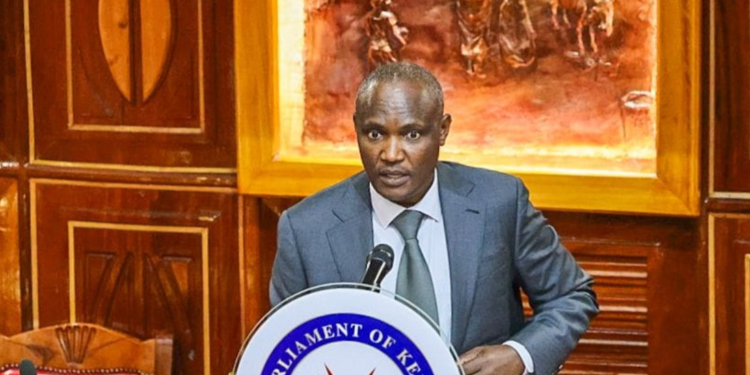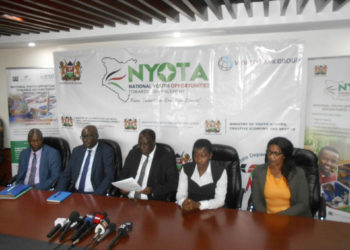Treasury Cabinet Secretary John Mbadi has confirmed that all government services, including those provided by the new Social Health Insurance Fund, will be processed through the e-Citizen platform, as part of the government’s broader policy to streamline public payments.
Speaking at the Senate Plenary, Mbadi responded to questions raised by Nairobi Senator Edwin Sifuna, who had sought clarification on whether payments to the Social Health Authority would also be integrated into the e-Citizen system or processed through a separate platform.
“The policy of the government presently is that any service that is provided should go through the standard system, e-Citizen,” Mbadi told the Senate, emphasising that the platform was created to address the inconvenience faced by the public when using multiple systems for different services. “Even the new Social Health Authority must now use the e-Citizen platform,” he added.
The e-Citizen platform, which has become the standard gateway for accessing a wide array of government services, was initially designed to streamline payments and provide transparency. Mbadi explained that e-Citizen collects convenience fees for successful transactions, while any failed payments are automatically reversed through the payment service providers, with the platform being notified of the reversal.
Senator Sifuna had raised concerns over the platform’s failures to process certain payments, including those to institutions such as the National Health Insurance Fund (NHIF). In response, Mbadi explained that the platform adheres to a specific format for payments, and any transaction that does not comply with this format will be rejected. “For any payment to succeed, it needs to follow the format expected by the system,” Mbadi stated.
In addition to addressing the integration of health payments, Mbadi responded to various budgetary questions, including those related to the development expenditure in the Financial Year 2022/2023. He informed the Senate that the original development budget stood at KES 715.4 billion, but this figure was revised to KES 583.2 billion during budget implementation. Of the revised amount, KES 357.9 billion was funded through ordinary revenue, KES 190.5 billion through loans, and KES 34.7 billion through grants.
In a related query from Senator Joyce Korir, Mbadi addressed the delays in pension disbursements to retired civil servants, citing several factors that contributed to the backlog, including bureaucratic bottlenecks, incomplete claims, and staffing challenges at the Pensions Department. He assured the Senate that reforms were underway to expedite the process, including the deployment of pension officers to Huduma Centres across the country.
The Treasury CS provided a specific update on two pensioners, Mr. Stephen Kipyegon Turgat and Mr. Jonathan Kiptanui Lang’at, whose payments had been delayed. While Mr. Turgat was not eligible for pension recalculations due to his retirement date, Mr. Lang’at’s claim had been processed, with KES 301,692.50 paid to his spouse.
Mbadi further outlined measures aimed at addressing the broader challenges in pension processing, including outreach programs and improved operations at the Pensions Department. “The Pensions Department has continuously revamped its operations to ensure timely, efficient, and effective payment of pension to all retirees,” he concluded.


















